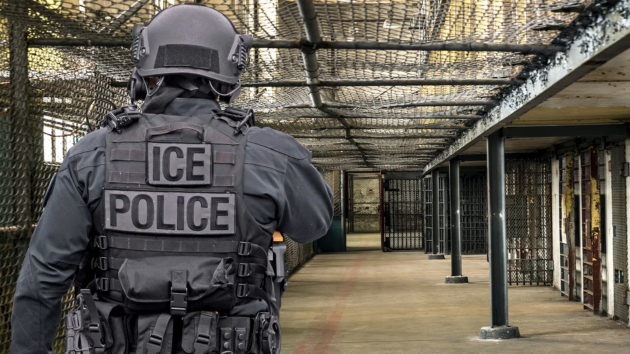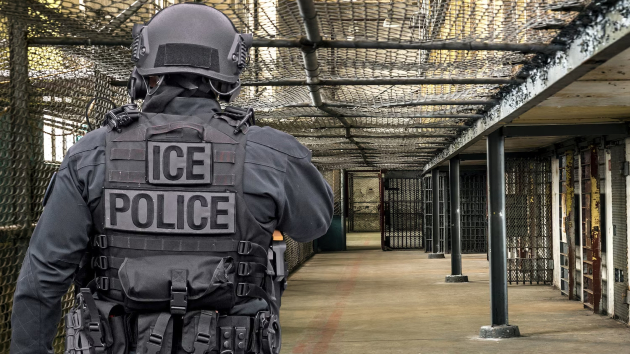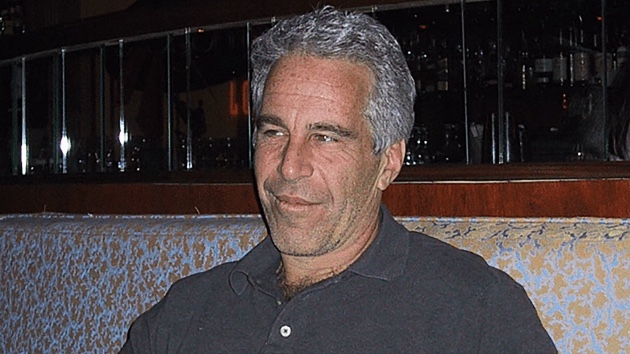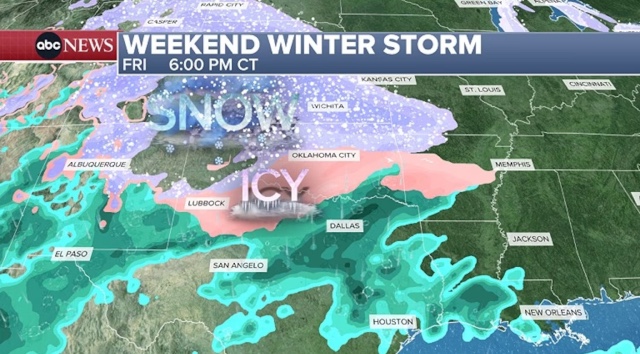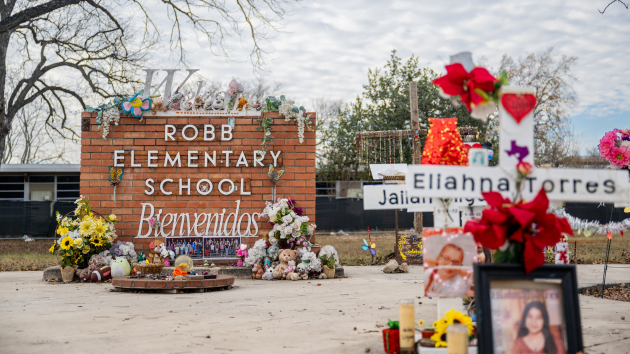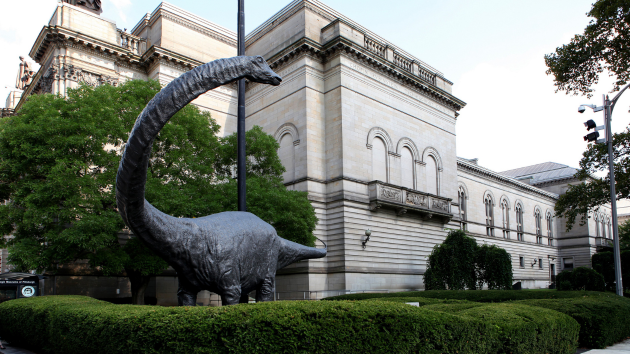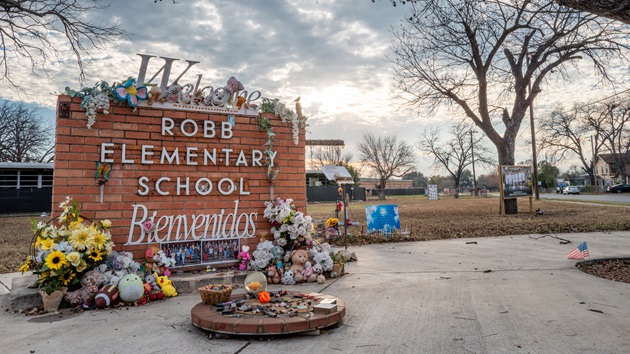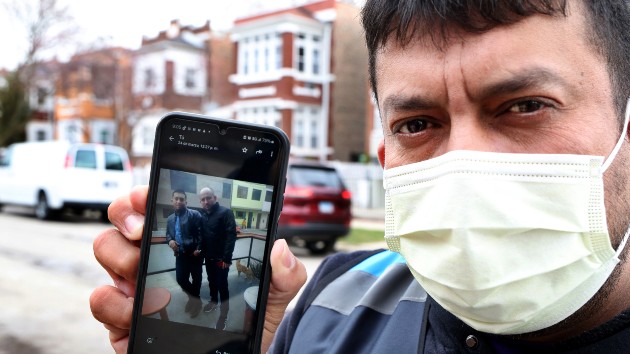
(BROADVIEW, Ill.) — A man who was detained by Immigration and Customs Enforcement (ICE) earlier this month is expected to be released on Friday from a facility in Broadview, Illinois, after community advocates and officials appealed for his release so he can resume the kidney donation process in hopes of saving his brother’s life.
ICE records show that Jose Gregorio Gonzalez, a native of Venezuela who was detained on March 3 in Illinois, is being held in the Clay County Jail in Brazil, Indiana. But Peter Meinecke, an attorney representing Gonzalez, told ABC News on Wednesday that his client is expected to be released from ICE detention by Friday.
“I was in communication with the officer assigned to his case today. It sounds like they are going to release him under humanitarian parole, so that is still being coordinated,” Meinecke said. “The logistics of his release are not yet confirmed with ICE, but potentially as early as Friday, he could be released, and at which point he would be able to pursue the kidney donation. I don’t have any specifics regarding the duration of release.”
The duration and the conditions of Gonzalez’s expected release are unclear. ABC News reached out to ICE, but requests for comment were not returned.
Meinecke, an attorney with The Resurrection Project — a group advocating for Gonzalez’s release — told ABC News that Gonzalez’s brother, Jose Alfredo Pacheco, who suffers from kidney failure, reached out to the group earlier this month seeking support after Gonzalez was detained.
Speaking in Spanish, Pacheco addressed a crowd of supporters during a press conference on Monday and called for his brother’s release.
“My health is at serious risk—I have 100% kidney failure and depend on dialysis three times a week,” he said, according to a translation provided by The Resurrection Project.
“It’s extremely difficult—sometimes, I can barely get out of bed. I have three children, nine-year-old twins and a 17-year-old back home, and I want to live to see them grow up. My brother used to take me to my appointments, but now I’m alone. My brother is a good man, not a criminal in Venezuela or here—he came only with the hope of donating his kidney to me. I thought I was alone, but seeing the support of this community has moved me deeply.”
Meinecke said that he had been in touch with Gonzalez’s ICE officer over the past few weeks and submitted a request for release on temporary humanitarian parole on March 25.
“He needs to show that his release is either in the public interest or is necessary for like, urgent humanitarian factors. And in his case, we argue both,” Meinecke said. “You know, obviously, the medical conditions kind of speak to both. They’re both urgent humanitarian factors by now, but organ donation is in the public interest as well.”
Meinecke explained that Pacheco was admitted into the U.S. from Venezuela in 2023 and was permitted to apply for asylum, so he has a work permit while his asylum application is pending. His wife and three children remain in Venezuela. But soon after he arrived in the U.S., he suffered from stomach pain and was diagnosed with “end-stage kidney failure,” Meinecke said.
“He went to the hospital with severe abdominal pain, which is when he was diagnosed with end-stage kidney failure,” Tovia Siegel, director of organizing and leadership at the Resurrection Project, told ABC News on Wednesday. “At the time, he was told he had 2 percent functioning of his kidneys and would need dialysis consistently, multiple times a week to survive, and really, his best chance to live a full, healthy life would be a kidney transplant.”
Since his diagnosis in 2023, Pacheco’s condition has deteriorated, Siegel said.
“[Alfredo] currently receives [dialysis] three times a week, from 4 am to 8 am, and his brother Jose came here to help care for him, and with the intention of being able to donate his kidney and save Alfredo’s life,” Siegel said. “And so for the last year, Jose has essentially been a full-time caretaker for Alfredo, helping with cooking, cleaning, etc, and with the intent to donate his kidney.”
But unlike Pacheco, when Gonzalez arrived to the U.S. from Venezuela “primarily to assist” his brother, he failed to pass the credible fear screening, which did not allow him to apply for asylum like Pacheco had done, according to Meinecke, so he was detained by ICE for several months and then he was granted temporary supervised release but still faced a pending removal order. During his time on supervised release, Gonzalez routinely checked in with his ICE officer, provided his address and wore an ankle monitor, Meinecke said.
Siegel said that Gonzalez was detained while the brothers were leaving their home to go to Pacheco’s kidney dialysis appointment.
“It was shocking and devastating,” she said. “They had been living life together, and an incredibly difficult life where one of the brothers was undergoing incredible medical distress and suffering.”
“They were taking care of one another and surviving for a year together,” she added. “And during that time, clearly, you know, caring deeply for one another, loving each other as family members do. Jose [Gregorio] had no contact with police, the criminal legal system, and then one morning, with, you know, completely unexpected, ICE came to their home.”
Gonzalez’s expected release comes after ICE denied on Monday a stay of removal request submitted by his attorneys and then the case was elevated to an ICE Chicago Field Supervisor, according to The Resurrection Project.
“This is literally a matter of life and death,” said Erendira Rendón, vice president of Immigrant Justice at The Resurrection Project. “ICE has the discretionary authority to release Mr. Gonzalez on humanitarian grounds. Every day he remains detained is another day his brother’s life hangs in the balance.”
Copyright © 2025, ABC Audio. All rights reserved.
- 1st defendant sentenced in NBA gambling scheme gets 2 years in prison - January 21, 2026
- DHS launches ‘Operation Catch of the Day’ enforcement action in Maine - January 21, 2026
- Ford recalls around 119,000 vehicles over fire risk: NHTSA - January 21, 2026


